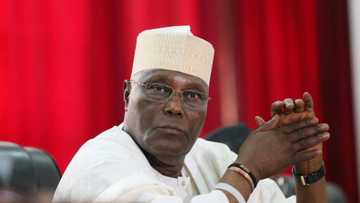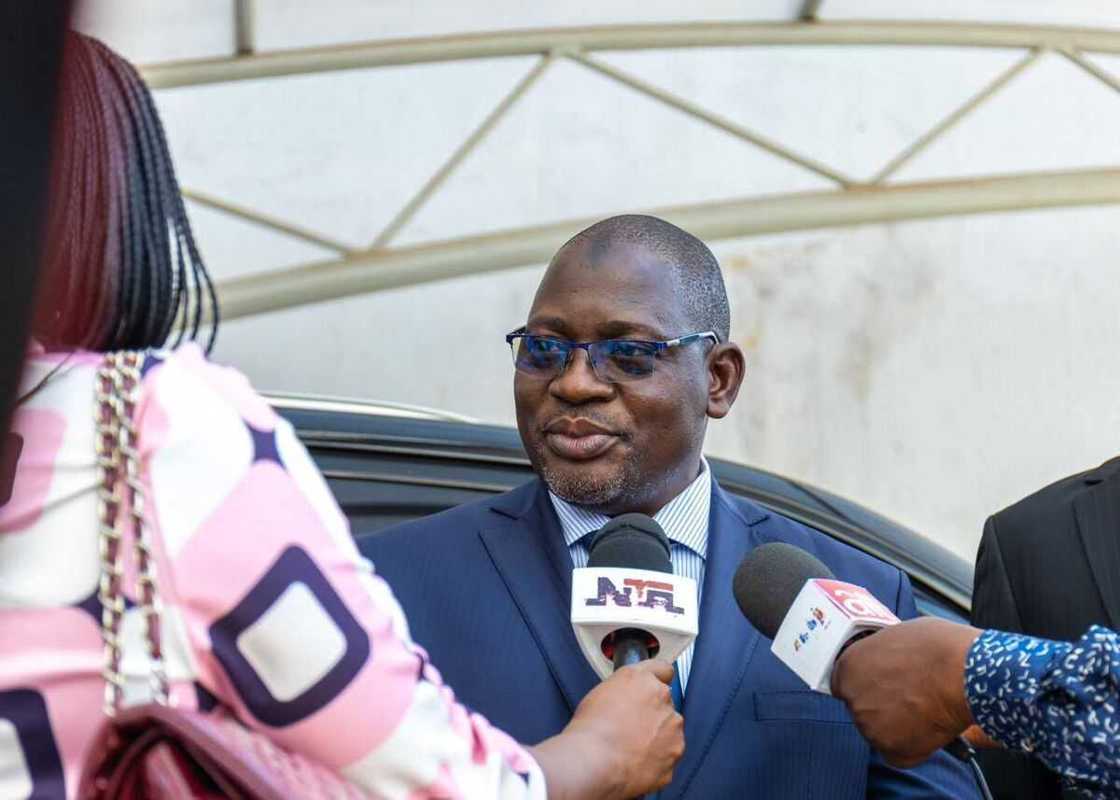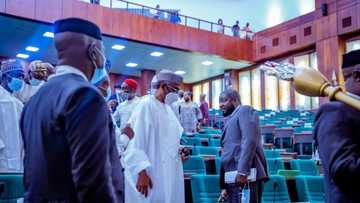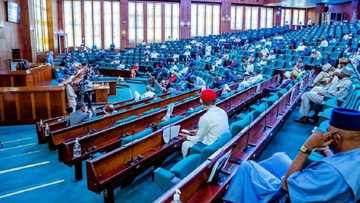OECD, Nigeria Meet on Maximising Benefits of Two-Pillar Tax Solution
- Nigeria has met with the Organisation for Economic Co-operation Development to fashion out new methods of maximising tax benefits
- A statement from the recently concluded workshop detailed steps Nigeria could take to tap into the full benefits of the partnership
- The Two-Pillar Solution is a set of proposed rules, endorsed by 138 countries across the world
PAY ATTENTION: Click “See First” under the “Following” tab to see Legit.ng News on your Facebook News Feed!
A delegation from the Organisation for Economic Co-operation and Development (OECD) met with Nigerian representatives on April 4 & 5, 2023, at a workshop it jointly organized with the Federal Inland Revenue Service (FIRS), to discuss the maximization of the benefits of the Two-Pillar Solution for Nigeria.
This is contained in the Workshop’s Outcome Statement, released on April 13, 2023. The Outcome Statement was signed by the Executive Chairman of the Federal Inland Revenue Service (FIRS), Muhammad Nami and the OECD Representative, Ben Dickinson.

Read also
PDP new generation dissolves national strategic committee, backs Atiku to reclaim mandate at tribunal

Source: UGC
Two-pillar tax solution enables digitised economy
The Two-Pillar Solution, a proposal by the OECD Inclusive Framework, is a set of proposed rules endorsed by 138 countries worldwide as a uniform solution to the tax challenges of the digitized economy and Base Erosion and Profit Shifting.
PAY ATTENTION: Сheck out news that is picked exactly for YOU ➡️ find the “Recommended for you” block on the home page and enjoy!
Nigeria, one of the four members of the Inclusive Framework that did not endorse the set of rules, met with the OECD delegation last week to familiarise relevant government officials with the rules, Nigeria’s position, as well as the potential benefits of the Two-Pillar Solution to the country and the world in general.
Key attendees to the workshop
The workshop was attended by key stakeholders, led by the Executive Chairman of the FIRS, Mr Muhammad Nami, who was represented by the Coordinating Director of the Executive Chairman’s Group, Muhammad Lawal Abubakar.
Others in attendance were the representatives of the Office of the Vice President, the Federal Ministry of Finance, Budget and National Planning, the Federal Ministry of Justice, the Federal Ministry of Industry, Trade and Investment, Nigerian Investment Promotion Commission (NIPC), Nigeria Export Processing Zone Authority (NEPZA), Oil and Gas Free Zone Authority (OGFZA), Nigeria Export Promotion Council (NEPC), Joint Tax Board (JTB), and some States’ tax authorities.
After a critical review of the rules and Nigeria’s participation in their development, stakeholders at the meeting resolved that there is a need for Nigeria’s continued involvement in the rule development as a member of the Inclusive Framework to ensure that the interest of the country and Africa is factored into the design and development of the rules.
Nigeria to continue to reap the benefits of digitised tax system
The Outcome Statement noted that whether or not Nigeria endorsed the statement of October 2021, and the detailed rules to be released later to address challenges arising from the digitalization of the economy, the country’s tax base and fiscal policy options will be impacted by the implementation of the Two-Pillar solution, especially the Pillar 2 Global Minimum Tax Rules of 15% effective tax rate (the GloBE rules).
The meeting consequently observed that there was the need for Nigeria to implement fiscal policy measures to address these potential impacts immediately.
The statement reads:
“There is also an urgent need to review and streamline Nigeria’s tax incentives, as the rules will have the impact of allowing other jurisdictions to mop up taxes not collected in Nigeria due to tax incentives.”
As part of its recommendations, the OECD-Nigeria Meeting urged stakeholders within the country to commence internal engagements and “draw up a national strategy for immediate streamlining of its tax incentives, to avoid ceding its tax base to other jurisdictions, owing to the implementation of Pillar 2 rules.”
Firs sets new record, collects over N10trn revenue in 2022, Buhari hails achievement
Legit.ng reported that the Federal Inland Revenue Service (FIRS) collected more than N10 trillion in 2022, its highest revenue collection in a single year. According to Punch,

Read also
10th National Assembly: North Central announces nominee for House of Representatives' speaker position
It is also the first time the FIRS will cross the 10-trillion naira mark in tax revenue collection.
The information was revealed in the "FIRS 2022 Performance Update," a report signed by the company's executive chairman, Muhammad Nami, and made public on Monday, January 23, 2023.
Source: Legit.ng



